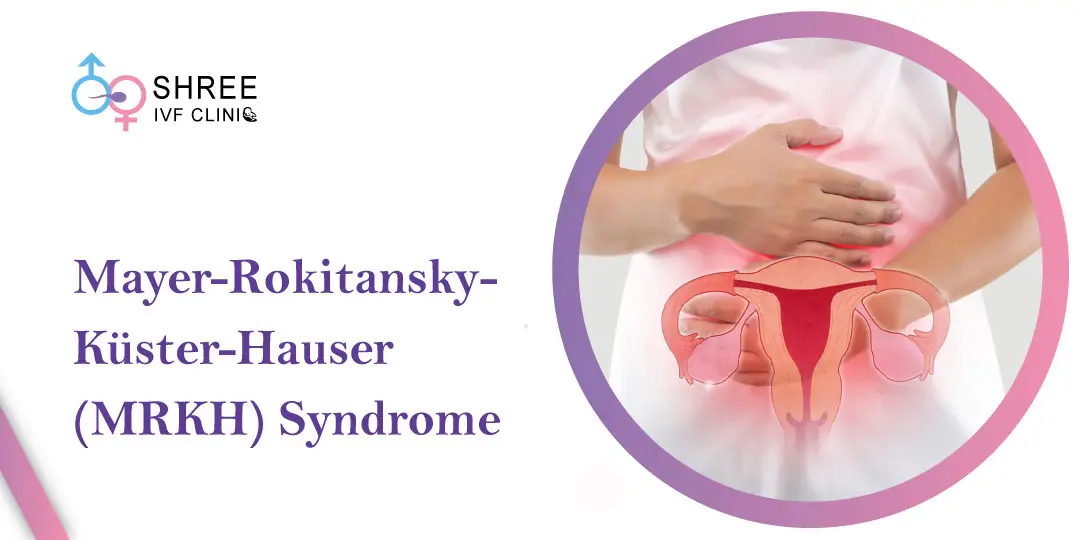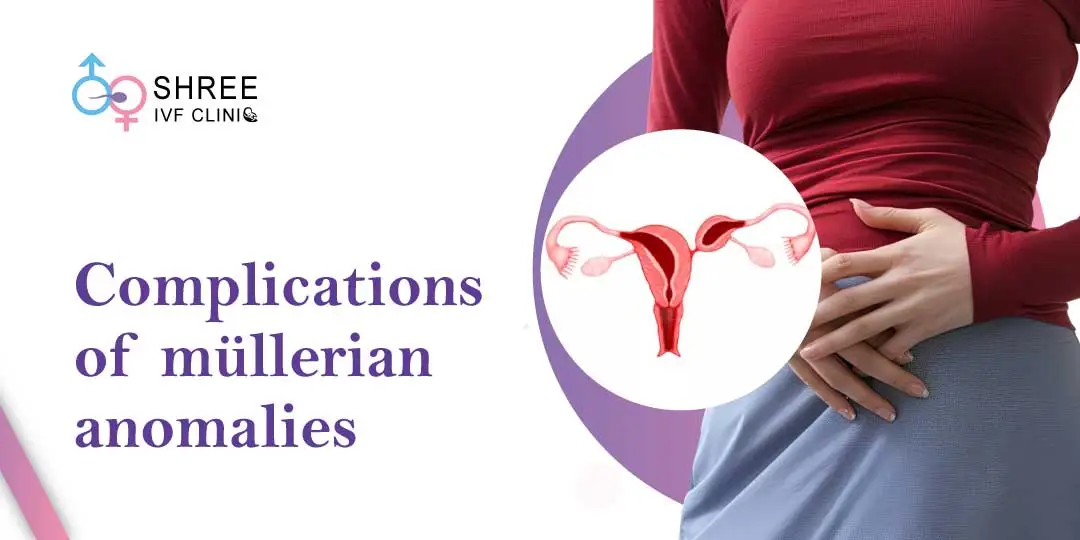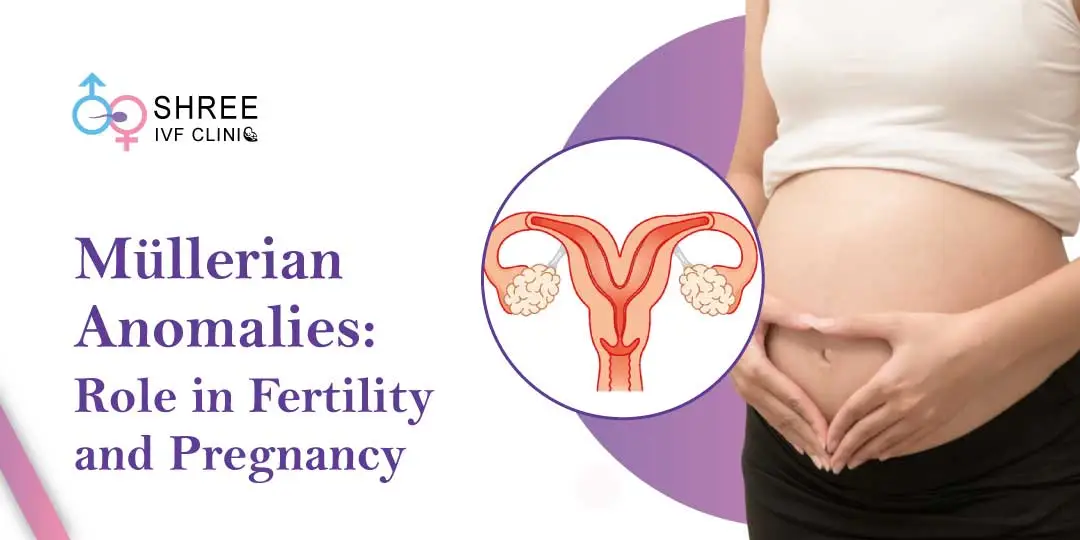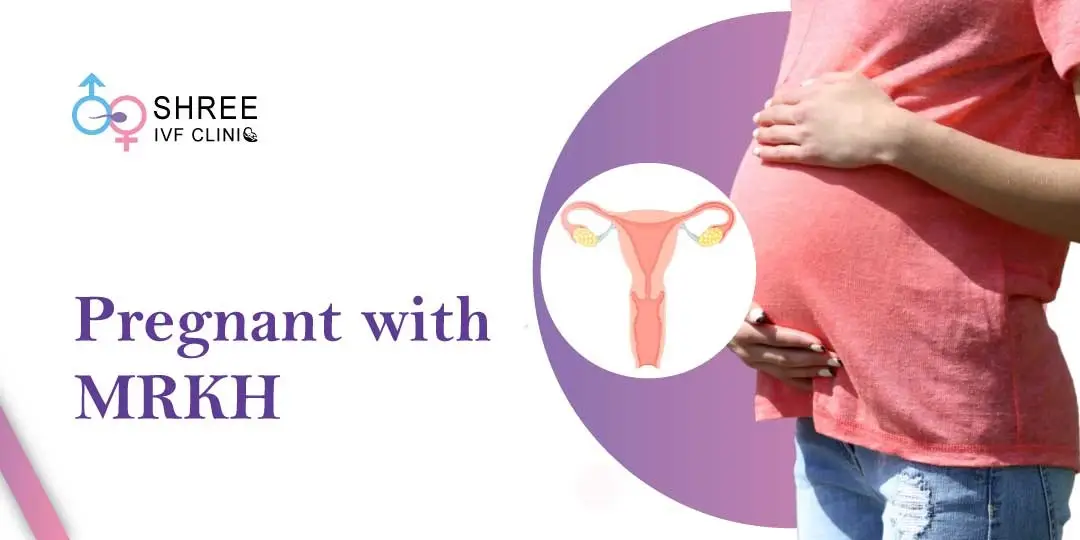What is the Cause of Mayer Rokitansky Syndrome?
UPDATED ON 3RD Mar. 2024
Mayer-Rokitansky-Küster-Hauser (MRKH) syndrome is a rare, often misunderstood condition affecting approximately 1 in 4,500 women globally. This congenital condition is characterized by the underdevelopment or complete absence of the uterus and upper part of the vagina.
The impact of MRKH Syndrome extends beyond physical health, often leading to significant psychological distress due to fertility issues and societal stigmas.
This comprehensive guide aims to demystify MRKH syndrome, delving into its causes, diagnosis, recent research developments, and the essential role of mental health support for affected individuals.

AUTHOR
Dr Jay Mehta
Scientific Director & IVF Specialist with 10+ years of experience
CONDITION
GET IN TOUCH ON
Understanding the Genetic Factors
The exact cause of MRKH syndrome remains elusive to gynaecologists. However, emerging research suggests that genetic factors could be instrumental in its development. Some studies have indicated that specific gene mutations or abnormalities might interfere with the normal formation of the female reproductive system, leading to conditions like MRKH syndrome.
Genetic research into MRKH syndrome is still in a relatively nascent stage. There is a growing consensus among scientists that multiple genes may be implicated in this condition, although the precise genetic markers and potential inheritance patterns remain largely unidentified. This complexity underscores the importance of continued genetic research to unravel the mysteries surrounding MRKH syndrome.
Embryonic Development and its Disruptions
The process of forming the female reproductive system begins in the embryonic stage. Any disruptions during this critical developmental period can lead to anomalies such as MRKH syndrome. This includes the development of the uterus and the upper part of the vagina, which can be influenced by various factors, including hormonal imbalances and environmental influences.
Understanding how these disruptions occur, and more importantly, why they occur, is key to developing strategies to prevent or treat MRKH syndrome. The exploration of embryonic development and the mechanisms behind these disruptions is an active area of research, with scientists hoping to discover new insights that could lead to innovative interventions.
The Challenge of Diagnosis
Diagnosing MRKH syndrome is a complex process that often entails various hurdles. The condition typically becomes noticeable during adolescence when menstruation fails to commence (primary amenorrhea). However, reaching a definitive diagnosis can take years. Gynaecologist employ several diagnostic methods, including ultrasound imaging, MRI scans, and in some cases, laparoscopy.
Given the sensitive nature of this condition, the process of diagnosis needs to be approached with the utmost care and sensitivity. The potential emotional toll of the diagnosis process should not be underestimated. Therefore, gynaecologist must ensure they offer compassionate, patient-centered care throughout the diagnostic journey.
Recent Research and Advancements
The landscape of medical science is ever-evolving, with MRKH syndrome being no exception. Recent advancements have brought about a better understanding of the genetic basis of the condition, leading to improvements in diagnostic techniques and treatment approaches.
Scientific breakthroughs in genetic sequencing technologies have opened up new avenues for research into the genetic basis of MRKH syndrome. These advancements have led to the identification of several genes that may potentially be implicated in the condition, providing fresh hope for those affected by it.
In terms of treatment, progress has been made in surgical techniques, hormonal therapies, and assisted reproductive technologies. For instance, uterine transplantation, although still experimental, offers a potential cure for infertility associated with MRKH syndrome.

4,790+
379K+
Psychosocial Impact and the Importance of Support
Living with MRKH syndrome can present significant emotional challenges. The inability to conceive naturally, coupled with societal pressure and stigma, can lead to feelings of inadequacy, depression, and anxiety. It is crucial to recognize the psychological impact of this condition and ensure that comprehensive mental health support is available to those affected.
Therapy and counseling, both individual and group-based, can provide a safe space for women with MRKH syndrome to express their feelings and learn coping strategies. Additionally, support groups, both online and offline, can offer a sense of community and solidarity, helping individuals realize they are not alone in their journey.
In Conclusion
Understanding and addressing MRKH syndrome requires an interdisciplinary approach encompassing genetics, embryonic development, diagnostic methods, treatment options, and psychological support. Continued research, awareness campaigns, and comprehensive patient care are essential elements in the fight against this condition.
AUTHOR
Dr Jay Mehta
Scientific Director & IVF Specialist with 10+ years of experience
CONDITION
CALL US 24/7 FOR ANY HELP
GET IN TOUCH ON
Share Article on
Recommended Reading
Are Mullerian Anomalies a Problem For Infertility?
Uncover how Müllerian anomalies affect fertility in our in-depth blog. From diagnosis to treatment, learn actionable insights for informed decisions on your reproductive health journey.
Müllerian Duct Anomalies: Role in Fertility and Pregnancy
Explore Müllerian Duct Anomalies’ impact on fertility and pregnancy. Discover types, diagnostics, treatments, and antenatal care with expert guidance.
Can You Get Pregnant with MRKH?
Curious about pregnancy with MRKH syndrome? Discover fertility options and treatment insights in our comprehensive blog. Learn about the impact of MRKH on conception, diagnostic methods, and the latest reproductive technologies.




